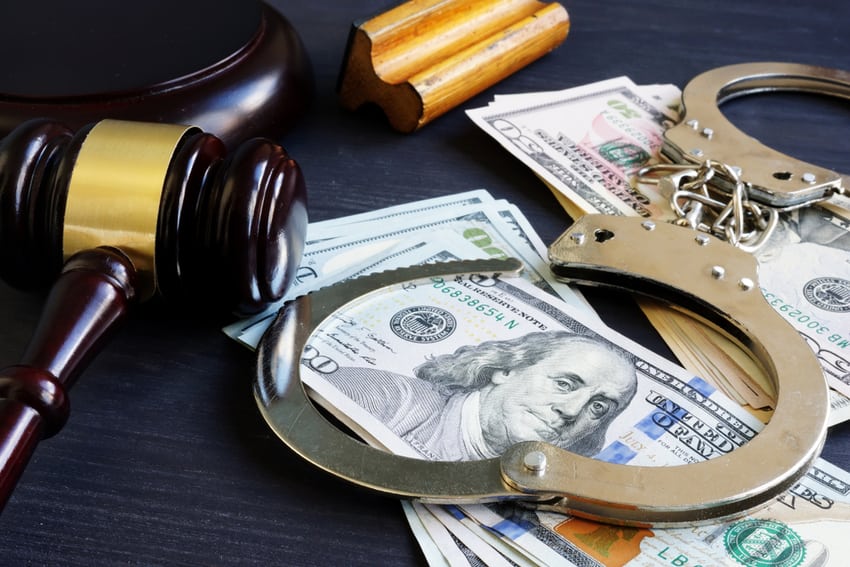
When someone is arrested and needs to post bail, one of the first questions they have is whether or not they will get their money back.
This question can be difficult to answer, as it depends on the specific situation. It depends on the type of bail posted and the outcome of the case.
In this blog post, we will explore what happens to bail money when someone is released from jail. We will also discuss what happens if the charges are dropped against the defendant.
Get Help From an Expert Today!
Do You Get Bail Money Back From Surety Bails?
When you post a surety bail, you do not get any money back even if the defendant attends all of their court hearings and complies with the conditions to get them released.
If you choose to use a bail bond company, you’re paying them a non-refundable fee to take the risk of posting the bail amount on your behalf. This fee is how the bail bond agent covers their costs.
The premium is a bail agent’s fee for maintaining the defendant and ensuring that he or she appears at all required appearances in court. The outcome of the case doesn’t matter and you don’t get this money back.
Do You Get Bail Money Back From Cash Bails?
If you post cash bail, you may get your money back, depending on the court’s decision. The defendant is required to make all their court appearances and comply with all the conditions.
When this happens, the full bail amount is returned to you when the case concludes. It’s important to understand that this happens regardless of the outcome.
However, if the defendant does not show up for a scheduled appearance, the court may keep the bail money and issue a warrant for the defendant’s arrest. There are other conditions as well.
For example, the court may withhold bail money to pay for any fines, fees, or restitution that the defendant owes in connection with their case. If the defendant is found guilty, the court may also apply the cash bail to their sentence, such as using it to cover the costs of probation or other court-ordered programs.
The court may also keep the bail money if the defendant is arrested again while out on bail.
Do You Get Bail Money Back From Property Bonds?
In the case of property bonds, the court will seize the property if the defendant does not show up for a scheduled appearance.
The process of selling the property may take some time, and you may not get back the full value of the bond.
You may also be responsible for paying any outstanding mortgage or loan on the property.
If you are thinking of using a property bond to post bail, you should speak with an attorney beforehand to fully understand the risks involved.
When Is Bail Returned?
If a defendant is found not guilty, the bond is discharged and any bail money that was posted will be returned to you.
If the defendant pleads guilty, the bond is discharged at the time of sentencing and any bail money that was posted will be returned to you.
But, how long does it take to get bail money back? Well, this can depend on numerous factors ranging from a few days to a couple of weeks or longer. If you used property to post bail the process can be even longer.
Do You Get Bail Money Back if the Charges Are Dropped?
If you didn‘t pay a surety bond you will likely get all or some of the bail money back. When the defendant is released from jail, the bail money is returned to the person who posted it.
If you posted bail on your own behalf, you will get your money back when the defendant is released.
Do You Get Bail Money Back If Guilty?
In some cases, you will still get your bail money back even if the defendant is charged. It depends on whether or not they complied with all the conditions of their release and showed up to all scheduled court dates.
Bail is not considered a punishment or as a way to pre-determine guilt or innocence. It’s a way to ensure that the defendant appears in court and doesn’t flee when their case is pending.
What Happens if You Can’t Afford Bail?
If you can’t afford to pay bail, you can contact a bail bondsman. A bail bondsman is a person or business that pays bail on behalf of a defendant.
The bail bondsman will charge you a fee, usually around ten percent of the bail amount. For example, if the bail is set at $1000, you will owe the bail bondsman $100.